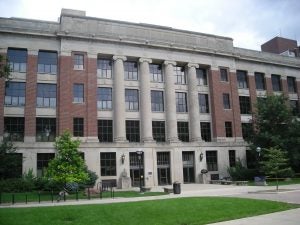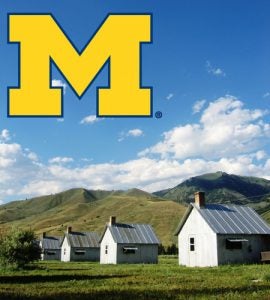On- and off-campus teaching since 2013. Earlier courses included field-based Introductory Geology, Intro to Environmental Geology, Basin Analysis, and “How to Build a Habitable World.” The current year’s teaching is italicized.
On-Campus:
EARTH 296: Natural History of the Everglades: Past, Present, and Future – 2017
EARTH 296 was jointly taught with Dr. Gregg Crane (English), and was an interdisciplinary “sophomore experience” class designed to integrate approaches from both the sciences and the humanities to investigate the complex environmental and sociopolitical history of the Everglades ecosystem. The course was centered around a spring break trip to Florida that spanned from Lake Okeechobee to the Florida Keys where we met with a variety of stakeholders to discuss Florida’s changing environments, with restoration ecologists to explore how they are putting the meanders back into the Kissimmee River, with climate scientists to discuss rising sea level, and with policy makers to discuss the complexities of trying to solve a variety of inter-related problems simultaneously.
EARTH/ENVIRON 442: Earth Surface Processes and Soils – 2017, 2018, F2019, W2021, W2022, F2023, F2024
EARTH 442 examines a variety of Earth surface processes, while focusing on soils, looking at the intersection between the biosphere, atmosphere, lithosphere, and tectosphere. The class involves field trips to examine forest and wetland ecosystems and to collect samples for laboratory analyses. Students gain practical skills in soil identification and description, as well as hands-on lab experience that includes UV-VIS, elemental analyzer, and stable isotope data.
EARTH/ENVIRON 446: Paleoclimatology – 2013, 2015, 2019, W2020, W2024
EARTH 446 looks at a variety of modern climate processes and then focuses on paleoclimate reconstruction for the past ~66 million years (Cenozoic) to examine how we can use past climate states to understand future climate change. The class involves problem sets, simple models, and discussions of the primary literature. In addition, some of the readers look at the cultural implications and challenges of a changing climate.
EARTH 580: Isotope Geochemistry – 2013, 2016
EARTH 580 is a graduate-level course on applications of both radiogenic and stable isotope geochemistry to a variety of problems in the Earth Sciences ranging from “hard rock” applications to biogeochemistry to ecology. The course is often team-taught to introduce student to the range of expertise in our department and includes both problem sets and practical laboratory experience.
Camp Davis (Summer Field Camp based in Jackson, WY):
EARTH 440: Field Geology – 2013, 2014, 2015, 2018, Su2019
EARTH 440 is a project-based course that focuses on practical field and report-writing skills that are applicable to a variety of careers in the Earth Sciences. Projects include a regional trip to learn about the geologic history of the western US, mapping and stratigraphy projects, and trip to Yellowstone National Park where the students become the teachers and lead the discussions of various geological and conservation-related issues.
EARTH 450: Ecosystem Science in the Rockies – 2016, 2017, 2021, 2023, 2024
EARTH 450 is a project-based course that focuses on field ecological and environmental skills that are applicable to a variety of careers in Environmental Science. Projects include field soil and ecological surveying, conservation, disturbance, and water chemistry. The class also meets with a variety of local agencies including the BLM to learn more about ongoing conservation and management issues, and culminates in a stakeholder debate by the students.



